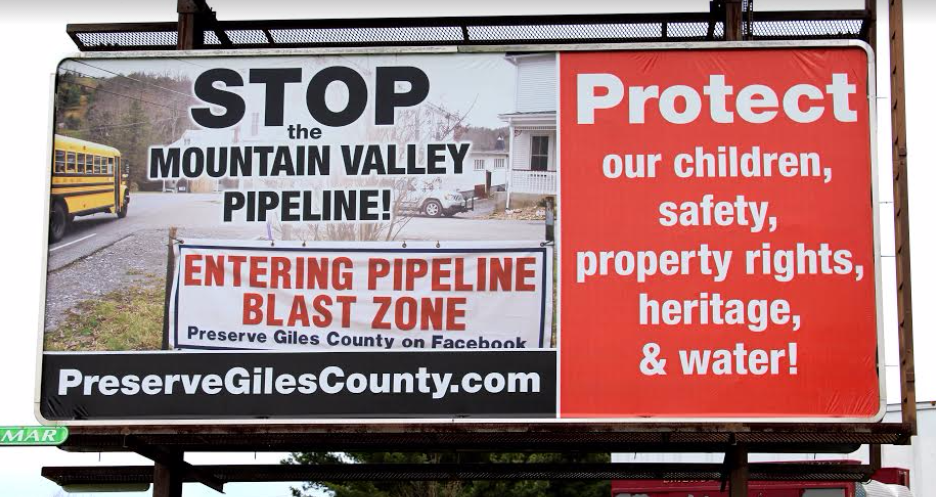The following is a guest post from Elisabeth Hoffman of Howard County Climate Action.
—
Turns out the chief benefit from Donald Trump’s election lies in the backlash.
Progress on immigration, environmental justice, women’s rights, #BlackLivesMatter, and health care are at risk. On climate change, in particular, we have shifted from barely addressing the unfolding catastrophe to baldly denying it even exists.
Yet Marylanders, after six years of trying and against all odds, just passed a ban on fracking. It passed with bipartisan support, along with the Republican governor’s backing, after a massive showing of grassroots resistance to this destructive drilling process.
In Trump’s America, more long-shot victories like Maryland’s fracking ban are sure to come. Why? Because around the country, mass protests and local actions have become the norm. State attorneys general are challenging the Trump administration, and state lawmakers are passing local protections – such as funding for Planned Parenthood. Communities are not watching idly as hopes for a better future are threatened with every executive order, regressive piece of legislation, and crack-of-dawn tweet.
This resistance began in the disoriented days after No. 45 was elected. Then, the day after Trump took the oath, millions protested around the world in the Women’s March. In D.C. alone, the crowd was three times the size of that on Inauguration Day. After Trump issued his first immigration ban, thousands showed up at airports, cities and towns in protest. Voters are confronting lawmakers at town halls. So deluded and unhinged is this administration, even scientists have had to leave the lab and take to the streets to call for facts instead of alt-facts.
The push for Maryland’s fracking ban coincided with Trump’s first flailing missteps. Stunned yet determined, a broad coalition of Maryland homeowners, tourism businesses, students, faith leaders, farmers and civic-minded residents demanded protection from an industry that violates regulations, preys on low-income communities, and buys its way out of every lawsuit. This grassroots movement of residents – from Friendsville to Lusby, Bel Air to Frederick, Baltimore to Columbia – signed petitions, mailed postcards, made calls and paid visits to state legislators. They implored town, city and county councils to endorse a ban. They spoke out in congregations and at public hearings. They marched through the streets of small towns and in Annapolis.
I was among 13 people, mostly faith leaders and Western Marylanders, arrested on March 16 at the State House in Annapolis to proclaim that our movement would not compromise the safety of our homes, our water and our climate. We would settle for nothing less than a ban. The day after our arrests, the tide shifted: Gov. Larry Hogan threw his support to the fracking ban, and in a matter of weeks the ban was in place.
With that same moral outrage, we head for the People’s Climate March on Saturday, April 29.
People are rising up against a president who has delivered the Environmental Protection Agency to a climate-denier known mostly as a serial plaintiff against the agency. They are standing firm against a president who has handed over foreign policy to the former head of Exxon Mobil, a company being sued for misleading the public and lawmakers for decades about climate change. Virginians will attest to coastal flooding. Baltimore residents will say no to their children’s asthma and choking pollution. From Standing Rock to Lancaster, Pa., from the Gulf Coast to the Potomac, communities will rise to protect their water and land and themselves from oil and gas pipelines, from fracked-gas power plants, from fracked-gas export factories.
We are in a race against rising seas, soaring temperatures, deadly droughts, fiercer storms, spreading diseases, forced migrations, dying oceans, and widening wealth gaps. Last week, levels of carbon dioxide in the atmosphere topped 410 parts per million, way beyond the levels that allowed human civilizations to take hold. In 1958, when record-keeping started at the Mauna Loa Observatory in Hawaii, the level was 280 ppm.
The hours that I spent in an Anne Arundel County jail cell, with its peeling paint and one small window in the heavy door, seem an apt metaphor for our nation’s limited and tired vision in the face of humanity’s greatest challenge. We must rush toward the world outside the cramped cell of our fossil-fueled world. That the current administration is running equally fast to slam the door spurs us to fight even harder.
Our uprising must and will be loud and persistent. In Trump’s version of America, the measure of our relief will be the extent of our enduring resistance.
##
















